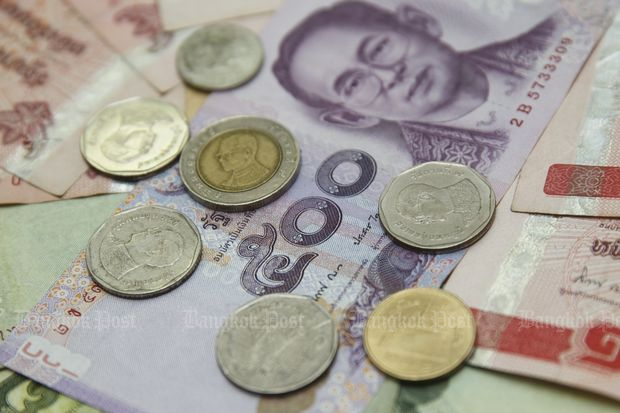
A seasonal downturn in the baht driven by dividend outflows and a lack of tourists could be worse than usual this year amid rising global bond yields and less liquidity, according to Kasikornbank.
A dropoff in tourists after the Songkran festival in mid-April and payouts to foreign stock investors usually spell declines for the currency in May. Last year was the first time the baht managed to rally in that month since 2009.
Rising developed-market bond yields and the gradual winding down of stimulus by the European Central Bank could prompt overseas investors to rebalance their portfolios away from emerging markets like Thailand, said Kobsidthi Silpachai, head of capital market research at Kasikornbank.
“The baht may see bigger downward pressure this year than usual,” he said. “Many clients are asking about this dividend season, while exporters are hoping for some light at the end of the tunnel.”
A decline in the baht may provide some relief to exporters who have complained about an 11% rally against the dollar over the last 12 months. Some 87 billion baht ($2.8 billion) of stock dividends will be paid out to non-resident investors in April and May this year, Kasikornbank estimates.
If the dollar rises beyond its 50-day moving average against the baht, that could open the way for the Thai currency to test its support area between the March 2 low at 31.587 and the 31.638 trough on Feb 22. Beyond that, the next support lies at the low of 31.957 reached on Feb 9.
The currency traded at 31.4172 to the US dollar at 6pm on Monday.